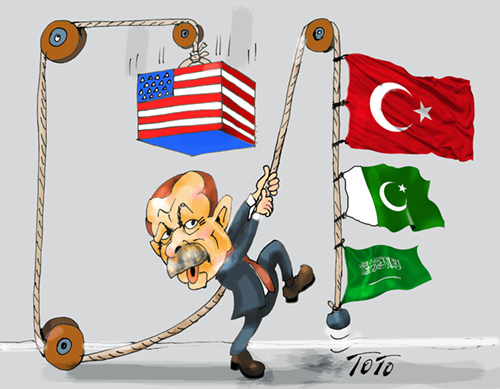It looks like all around the globe, there are developments and transformations in many regions that are undergoing a reset.
President Joe Biden reversed the foreign policy course set by his predecessor, Donald Trump, who led the US to isolation through unilateralism and championing America First.
Before leaving office, former Secretary of State Mike Pompeo lobbed a salvo against China, leaving the task of damage control to the incoming administration.
However, the new administration took power with a preset agenda of containing Russia.
The Biden Administration’s new aggressive policy against Russia will resonate in Europe. Because of Mr. Trump’s isolationist policies, the European Union was veering more towards Russia, mainly through cooperation in trade and energy. But the recent trip of Josep Borrell, the foreign policy chief of the European Union (EU), proved to be disastrous, because Moscow refused to budge to the EU’s demands regarding human rights.
Therefore, the EU decided to fall back in line with Washington to confront Russia, mostly by toughening the sanctions regimes.








